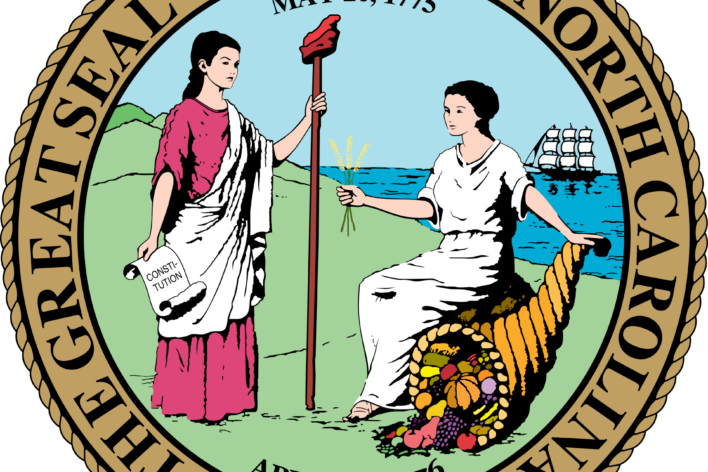North Carolina Education Benefits for Military & Veterans

Discover North Carolina’s higher education benefits and programs for the military, National Guard, veterans, and dependents, including tuition assistance, scholarships, and Yellow Ribbon schools.
Military and Veteran Education Benefits in North Carolina
North Carolina Scholarship for Children of Wartime Veterans
The North Carolina Scholarship Program is for children (under the age of 25) of qualifying wartime veterans who have died, were disabled in the line of duty, and POW/MIA veterans.
This scholarship includes funding for up to 8 semesters. The parent must have been a legal resident of the state when entering military service, or the child was born in North Carolina and “has been a resident of North Carolina continuously since birth.”
Review the application forms for this program carefully. Submission deadlines may vary depending on whether the parent was 100% disabled or received a partial disability rating (less than 100%) from the VA.
Learn more about the North Carolina Scholarship for Children of Wartime Veterans
North Carolina National Guard Tuition Assistance Program
Tuition assistance is available for qualifying North Carolina Army and Air National Guard members. This military financial aid is for qualifying programs earning an associate, bachelor, or graduate degree.
This program’s availability is subject to funding; if funding runs out, it may not be available for all applicants. To qualify, applicants must be “active with no disciplinary action,” and two years must remain on the applicant’s military service commitment. Applicants must make satisfactory academic progress.
Learn more about the North Carolina National Guard Tuition Assistance Program
North Carolina Higher Education Programs
Before applying for any scholarship program or related opportunity, completing a Federal Application Form for Student Aid or FAFSA is a good idea. While FAFSA can’t help students with state-level education benefits, many such benefits have FAFSA requirements or require you to exhaust specific FAFSA options first.
You can find North Carolina colleges using our college locator tool.
North Carolina Residency Determination
Depending on the nature of your funding and schoolwork in North Carolina, it may be necessary to officially determine your status as an in-state student or out-of-state applicant. That’s where this service comes in.
According to the official site, it’s also designed to serve as a one-stop residency determination for applying to “multiple North Carolina public colleges and universities and to demonstrate residency for state aid programs consideration at all (public and private) North Carolina colleges and universities.”
This program partners with the University of North Carolina (UNC), the North Carolina Community College System, the North Carolina State Education Assistance Authority, and North Carolina Independent Colleges and Universities.
Learn more about North Carolina Residency Determination
NC Promise Tuition Plan
NorthCarolina.edu says the state is “home to the nation’s first public university,” and as such, the state has committed to creating education pathways for its residents. The NC Promise Tuition Plan is part of that commitment.
Through NC Promise, four University of North Carolina schools have reduced tuition to $500 per student per semester. The participating schools are:
-
- Elizabeth City State University
- Fayetteville State University
- University of North Carolina at Pembroke
- Western Carolina University
Learn more about NC Promise
North Carolina Educational Assistance Authority
This organization exists to help future college students plan and pay for higher education in North Carolina. The official site has resources to help you plan your college journey and find resources to pay for it.
The organization’s official site describes it as a free service of the State of North Carolina. It operates in partnership with state-supported colleges and independent schools.
Learn more about the North Carolina Educational Assistance Authority
Select North Carolina State Scholarships for College Students
Next NC Scholarship
Next NC Scholarship offers full coverage of tuition and fees at any community college, and “more than half, if not all, of tuition and fees to attend any public university in the state” according to the NC Community Colleges official site. This is not a loan and does not have to be repaid.
To qualify:
-
- You must be a North Carolina resident.
- You must be eligible for in-state tuition.
- You must be a high school graduate or have a GED and come from a household with an annual Adjusted Gross Income of $80,000 or less.
- You must take six credit hours more per semester
- You must make academic progress.
Learn more about the Next NC Scholarship
North Carolina American Indian Fund
The North Carolina American Indian Fund is designed to help American Indian students “in obtaining higher education by providing scholarships to students who demonstrate a commitment to the American Indian community, extracurricular and volunteer involvement, financial need, and academic success.”
To qualify, you must be a resident of North Carolina “currently enrolled in a post-secondary institution in the state” according to the official site. This scholarship program is for those “with current tribal enrollment and an award preference for “NC-state recognized tribe members.”
At press time, scholarships were listed at $1000 each, but the amount is subject to change depending on variables such as program funding and changes in policy.
Learn more about the North Carolina American Indian Fund
Select North Carolina Yellow Ribbon Colleges
The Yellow Ribbon program is designed to help veterans pay for college expenses not covered by the GI Bill. Not all colleges participate in Yellow Ribbon, and not all can be approved under the program. The list below is current at press time, but school requirements and other policies are always subject to change.
Before applying, check with the admissions office to see if your school is still in the Yellow Ribbon program
Johnson & Wales University-Charlotte
801 West Trade Street
Charlotte, NC
(980) 598-1000
University of North Carolina Chapel Hill
Jackson Hall, Campus Box 2200
Chapel Hill, NC
919.966.3621
North Carolina State University at Raleigh
21 Peele Hall, Campus Box 7103
Raleigh, NC
919.515.2434
3395 Airport Rd
Pinehurst, NC
(910) 692-6185
Mcdowell Technical Community College
54 College Drive
Marion, NC
(828) 652-6021
1986 Pitt Tech Road
Greenville, NC
(252) 493-7200
Wake Technical Community College
9101 Fayetteville Road
Raleigh, NC
919.866.7970
1 University Way
Cullowhee, NC
(828) 227-3074
At press time, all colleges in the list below are GI-Bill approved and participate in the Yellow Ribbon program. VA.gov reminds veterans that the Yellow Ribbon program is meant to help pay for higher out-of-state, private school, foreign school, or graduate school fees the Post-9/11 GI Bill doesn’t cover, and if you’re considering any North Carolina State-based education options, Yellow Ribbon can help.
You can find North Carolina colleges using our college locator tool.
About the author
Joe Wallace is a 13-year veteran of the United States Air Force and a former reporter/editor for Air Force Television News and the Pentagon Channel. His freelance work includes contract work for Motorola, VALoans.com, and Credit Karma. He is co-founder of Dim Art House in Springfield, Illinois, and spends his non-writing time as an abstract painter, independent publisher, and occasional filmmaker.

